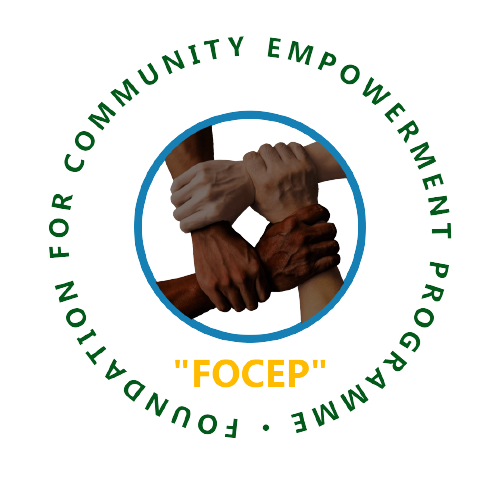1.0 Introduction/Background
The Foundation for Community Empowerment Programme (FOCEP) in partnership with Ghana Somubi Dwumadie (GSD) with funding from UK aid is implementing an intervention dubbed: Promoting Equal Rights and Opportunities for All in the Mamprungu Moaduri District of the North East Region of Ghana.
Ghana Somubi Dwumadie (Ghana Participation Programme) is a four-year disability programme in Ghana, with a specific focus on mental health. This programme is funded by UK aid from the UK government.
As part of the activities to create awareness and advocate for the rights and inclusion of the persons with disabilities and persons with mental health conditions, FOCEP carried out weekly radio programme on disability issues with YKFM in Yagba. This report covers the period from May to June 2021.
2.0 Topics discussed
Topics discussed so far include the following:
- Inclusion of persons with disability in the development planning process
- Human rights issues of persons with disability and persons with mental health conditions
- Social support from the communities for persons with disability and persons with mental health conditions
- Discrimination and stigmatization reduction strategy against persons with disability and mental health disability
- Awareness creation on Disability Act and Mental Health Act
FOCEP provides interview guides on weekly basis to help structure and guide both host and panellists during radio discussion. Below is a sample of the interview guide.
3.0 Participation in the Radio discussion
In order to ensure effective running of the radio programme, FOCEP conducted a one-day training for 50 (selected persons who will participate in the radio activities as hosts and panellists. Participants were taking through how to introduce themselves, how structure and their Presentation on the radio, good listening skills and how to response to question during phone in session. Demonstrations were also carried out to illustrate how to speak in the local dialect (i.e. mampruli) devoid of derogative language or words.
The panellists were selected across the district from Yagba, Kubori, Loagri and Yiziesi
| Number | Male | Female | Total |
| DPO’s | 22 | 14 | 34 |
| SHG’s | 2 | 3 | 5 |
| Traditional leaders | 6 | 3 | 9 |
| Total | 30 | 20 | 50 |
In this quarter, a total number of 13 radio discussion sessions were held. The topics discussed were led by the persons with disabilities and persons with mental health disability panellists. FOCEP team assistance in developing questionnaire guides to radio hosts to help moderate the discussions.
4.0 Major points made by panellist
- In our communities, we have to include persons with disability in our activities such as farming, community meetings, construction of rooms, election of leaders, and transportations
- We need to support persons with disability to farm so that they can feed themselves, but most us of don’t even go to help them when the need farm labourers, some even steal their animals which is not good yet there is no one to support them, we need to change our attitude
- It is high time we support them when they are joining the cars, or needs our motor bikes to town, they are part of our communities and any one can become disabled at any time, it is our individual responsibility to assist persons with disability in our communities to engage in an income generating activities
- On the part of social support, the panellist said that disability is more of social, rather than medical condition. Lack of attention and social support may impact on participation of people with physical disability in various aspects and their return to normal life in our societies moreover, people with disability become isolated and unable to attend functions in our communities, and we parent and relatives don’t even care about them, but it is good you involved them and even assist them with means of transport to venues of function for them to socialised and learn new things or ideas
- Some of these supportive resources can be emotional [e.g. nurturance], tangible [e.g. financial assistance], informational [e.g. advice], or companionship [e.g. sense of belonging] and intangible [e.g. personal advice].
- Also, people should not hide on the basis that resources are scares and neglect their responsibilities, when you see a disabled person coming to you in your office on an issue, please do well to assist that person and not to sacked them and saying that this people are disturbing you.
- The rights of persons with disability and persons with mental health conditions have the fundamental human rights to education, family life, access to medical services, social protection policies such health insurance, LEAP among others.
4.1 Phone in contributions and clarification
I also want to thank the panellist for showing us the way and how to handle people with epilepsy, I thought it was contagious [A man from Loagri]
We want to thank Foundation for Community Empowerment programme and their partner Ghana Sumobi Dwumadie for this radio programme, we the PWD’s are now empowered with knowledge on how to report people who would abuse our rights [ A visually impair man from Yagba.
It is refreshing to note that, a total number of 209 people phone in to contribute to the programme comprising 86 males and 123 females.
5.0 Conclusion
The Foundation for Community Empowerment Programme implementing team is very thankful to Ghana Sumobe dwumadie and donors UKAID for their financial and technical assistance in implementing this project.
We are also grateful to our partners, stakeholders for their immense contribution and cooperation during this project implementation
.
Compiled by:
Enoch Dokurugu
(Project Officer)

